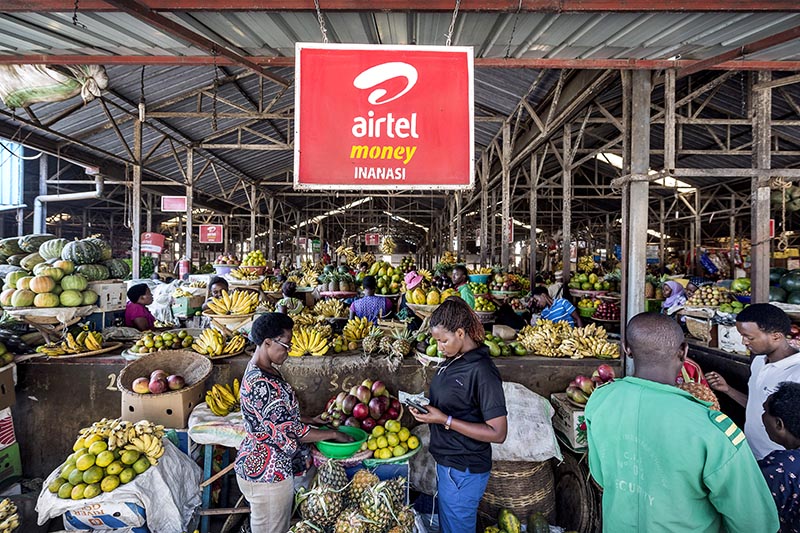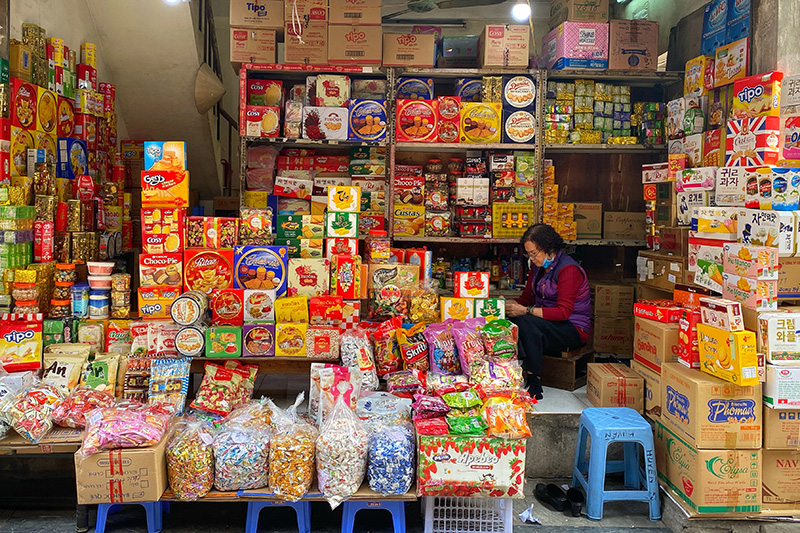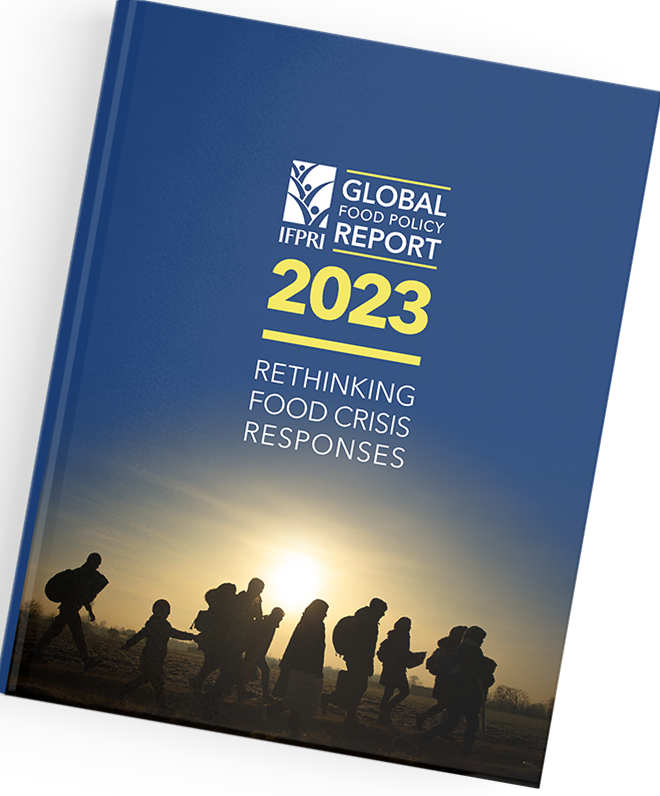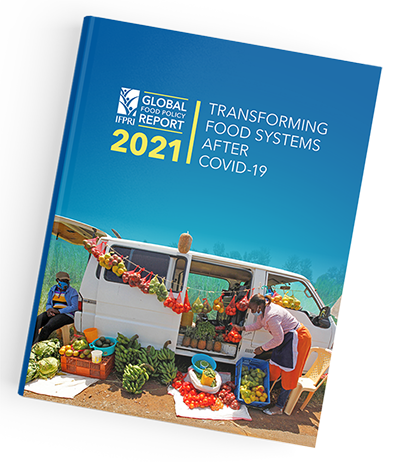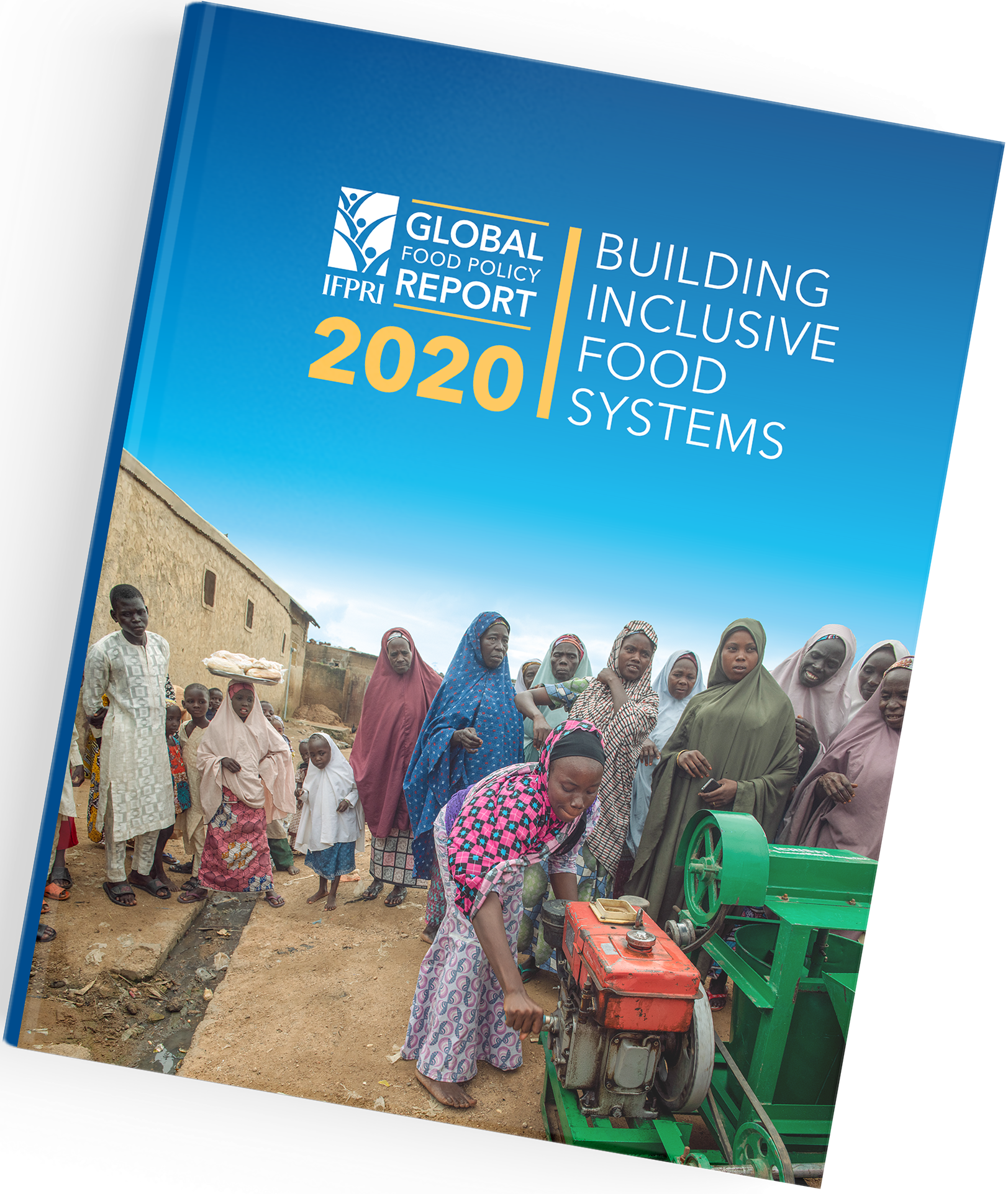Food Systems for Healthy Diets and Nutrition
Hybrid Global Launch Event
May 29, 2024 | 9:30 TO 11:00 AM EDT
Food systems and diets underpin many critical challenges to public health and environmental sustainability, including malnutrition, noncommunicable diseases, and climate change, but healthy diets have the unique potential to reshape the future for both human and planetary well-being. Drawing on recent evidence and experience, the 2024 Global Food Policy Report highlights opportunities for transforming food systems to ensure sustainable healthy diets for all.
FOREWORD
A Word from IFPRI
The world is at a pivotal moment in our understanding of the need to put sustainable healthy diets within reach of all people and the pathways to reaching this goal. Global commitment to improving nutrition has risen, but there is still a long way to go. Less than half of the world’s population consumes nutritious diets, progress in addressing malnutrition has stalled in many places, and the impacts of climate change on food systems are becoming increasingly obvious. We are facing many challenges, but focusing on diets to improve nutrition and well-being can guide our efforts.
Themes
Explore thematic chapters on food systems approaches to achieve sustainable healthy diets and the challenges and opportunities we face going forward
Advancing Nutrition
Leveraging food systems for nutrition requires a shift toward sustainable healthy diets that promote well-being for both people and the planet
Diets and Nutrition
Anchoring sustainable healthy diets as a key outcome of food systems transformation helps prioritize diets as a critical way to tackle all forms of malnutrition
Demand-Side Approaches
Understanding the drivers of individual food choices, consumer behavior, and food demand is essential to reshaping food systems
Diet Affordability
Shifting toward sustainable healthy diets will require bridging the gap between the current food budgets of the world’s poor and the high cost of nutritious foods
Food Environments
Food environments warrant attention to better understand how they affect diets and to develop policy actions that promote sustainable healthy diets
Plant-Source Foods
Plant-source foods deliver energy and important nutrients, but policies and investments are needed to improve production and consumption of these foods, especially among vulnerable populations
Animal-Source Foods
Incorporating animal-source foods into sustainable healthy diets will require shifting consumption patterns around the world to benefit human health and planetary well-being
Improved Governance
Sound governance is essential for policy interventions that help improve diet quality and nutrition
Regions
Malnutrition and unhealthy diets are global problems that have been compounded by recent shocks. Challenges, responses, and potential solutions vary across regions and countries, requiring context-specific policy interventions to make sustainable, healthy, and diverse diets more affordable, accessible, and desirable.
Africa
Diverse diet and nutrition conditions call for targeted strategies to increase the supply, affordability, and consumption of healthy foods, especially for the most vulnerable
Latin America & Caribbean
Both demand- and supply-side solutions are needed to tackle malnutrition and challenges to accessing and affording healthy diets
Central Asia
Obstacles to improving diet quality and nutrition include the high cost of a healthy diet, inadequate nutrition knowledge, unhealthy consumption habits, and domestic and regional policies
Middle East & North Africa
Multifaceted policy approaches are needed to boost the resilience of food systems to frequent shocks, which raise food prices and affect diet quality
East & Southeast Asia
Multi-duty policy actions are needed to address the double burden of malnutrition and its drivers, including rapid urbanization, income growth, and environmental changes
South Asia
Combating high levels of malnutrition and rising rates of noncommunicable diseases will require fiscal reforms to promote the production and consumption of non-staple foods



